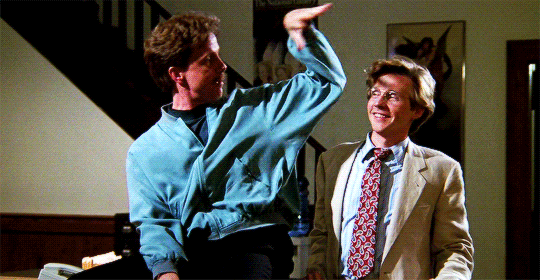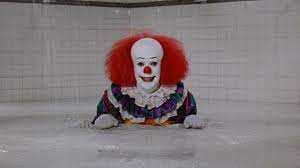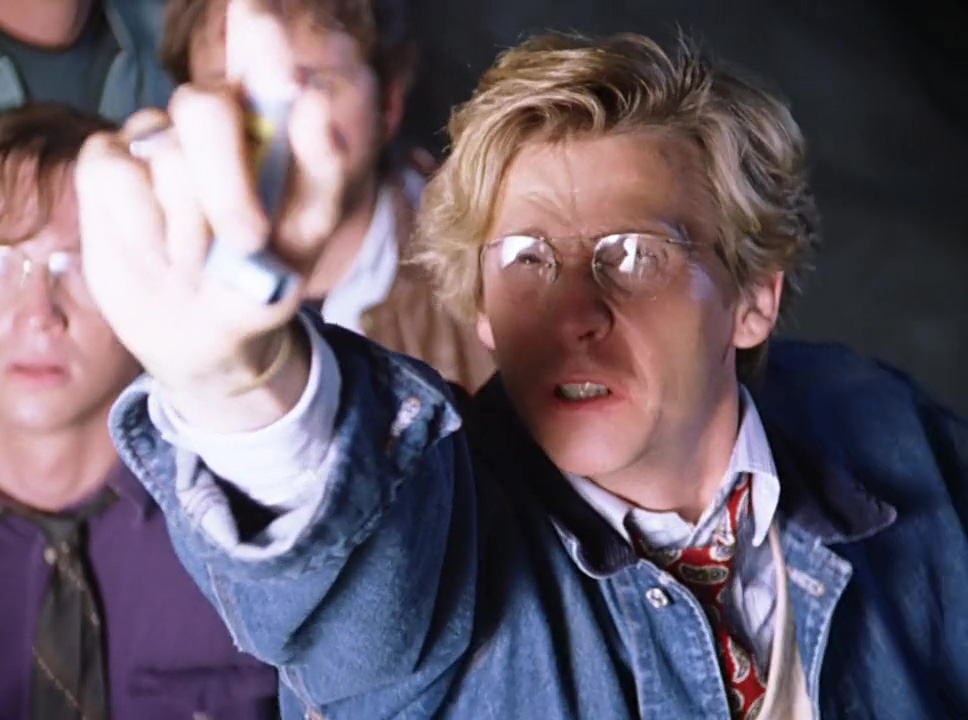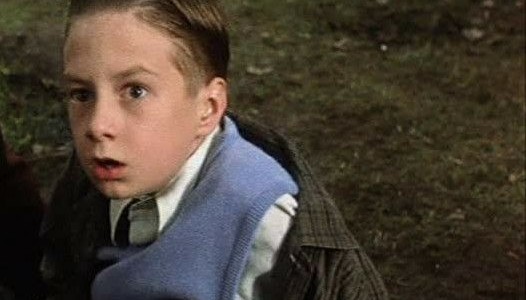Most characters don’t make it out alive in horror movies. Some survive until the final reel if they’re lucky, while others become bodies on the slab before the titles have even run! They are sacrifices for us bloodthirsty fans, but there’s more to them than that. They have wants never met. Stories never properly finished. In Always the Final Kill, Never the Final Girl, writer Matt Konopka digs up these poor souls lost under the shadow of heroes to give them the proper attention they deserve.

The Losers Club in Stephen King’s IT 1990 miniseries is a group that reflects the best of humanity. There is no prejudice in them. All are welcome with opens arms. When we’re a kid attempting to navigate the dark tunnels of childhood, it isn’t easy to find that light of acceptance. More often than not, we run into a clownish culture that would sooner devour us than offer a helping hand.
Eddie Kaspbrak is one member of this “Loser’s Club” who outshines the darkness of hate as a too rare example in the pantheon of film: An asexual hero.
Representation has come a long way since 1990—with lightyears to go—but one community which media continues to fail is that of the ace population. How many characters do you know of who openly identify as ace in film? That’s what I thought. I had never heard the term “ace” when I first stumbled upon the nightmare fuel that is Tommy Lee Wallace’s IT. So when Eddie reveals that “I could never sleep with somebody that I didn’t love,” the meaning of that drifted by like a lonely paper boat.
Eddie is demisexual. For those unaware, that’s an orientation which falls under the ace spectrum. All it means is that he is not driven by sex, but by love. Eddie doesn’t feel that immediate sexual attraction towards someone like others might. It isn’t “weird”. It isn’t “abnormal”. It just “is”.
But back in the pastel-washed 1990s, there was no discussion of ace-ness. Ace characters rarely appeared in books. They weren’t in movies. It was as if they didn’t exist at all. If they had, maybe it would’ve been easier for people like my wonderful wife to realize that she was ace. Instead, she lived a life of confusion until her adult years. Growing up in a society that views sexuality through a strict, binary lens is troubling enough for anyone that falls outside of that. The damage of a culture where the gears are oiled by sex is that it can lead ace people to believe they are broken. I could fill a reservoir with the tears my wife has shed on her road to acceptance over this false perception.
Tim Curry’s portrayal as Pennywise is responsible for a whole generation’s coulrophobia (fear of clowns)—myself included—but the true terror which flows through the pipes of King’s story is in how the world tries to make us believe we’re broken. The whole self-satisfactory purpose of bullies like that demonic clown or Henry Bowers is in how they cut that very thought into us. In the case of Pennywise, he feeds on whatever troubles us most.
Being a kid is a scary time because it’s when you’re first confronted with the truth about yourself—and the world’s opinion of you—even if you’re not sure what it all means yet. Each member of The Loser’s Club faces a vulnerable element within them which is more frightening than any creature Pennywise could conjure. In Eddie’s case, he’s told over and over again that he’s a weak “girly boy”. The hypochondria enforced by his mother festers in his mind. The lies which he’s been told about himself are eating him alive long before Pennywise dances onto the scene.
Speaking as a kid who faced bullying, the other thing you realize at this age is the adults are nowhere to be found for help. The way every adult in IT looks the other way is just a microcosm of a society that ignores the problems of anyone who doesn’t fit the norm. Our kids are too often left to float like lost balloons with no one around to catch them. I suppose it’s easier to sit back with a joint and remain ignorant while you watch King’s MAXIMUM OVERDRIVE for the 1000th time. But what IT’s parents (and our own history) have taught us is that complacency is what gets our kids killed. That unwillingness to learn. To grow. To accept them for who they are.

You have to make room in your heart for understanding. That isn’t to say it’s easy to just “get it”. While the other kids’ torments are manifested in easier to digest forms—Ben’s dead dad, Richie’s werewolf, all living, breathing monsters—Eddie’s “monster” isn’t so simple. His first encounter with Pennywise comes in the locker room shower. On the surface, it’s a breeding ground for germs. But it’s also the place many of us discover sexuality. The initial observations of puberty. The first time we see other naked flesh, and that eyes are on our own bare bodies. Pennywise doesn’t need to come to Eddie in another form. He appears as he is, a sexless entity with eyes rolling over the poor kid’s uncomfortable body, teeth bared and hungry for it. Pennywise is the painted manifestation of Eddie’s sexual angst, bubbling up from the deepest, darkest sewers of his sub-conscious.
What makes Eddie a hero worth celebrating is that even though he may not understand who he is or the feelings which plague him, he faces it all head on.
Eddie is no spaghetti. He’s a ribeye steak with a heart just as thick. Despite his internal conflict. Despite all of the lies. Despite being the smallest. The “weakest.” Eddie finds the strength in himself to stand up against Pennywise during both confrontations. First, he believes in himself enough to turn his inhaler into “battery acid, you slime”. And who among us can say we have the confidence to approach a giant spider with no more than that same inhaler while shouting, “I believe in the Tooth Fairy. But I don’t believe in you.” Eddie’s way of saying he no longer sees his ace-ness as something to be afraid of. Bill may be the “leader” of The Losers, but Eddie is the courage. They all take a breath of his inhaler just before facing Pennywise as kids because they know it, too. His bravery is their light in the darkness.
I adore IT, but thirty years later I cannot escape the frustration over the fact that Eddie doesn’t step out of that sewer as a new man. The other Losers get to move on with their lives as the best versions of themselves. Not Eddie. It’s only just before his end that he confesses his sexuality to his friends and receives their acceptance. For just a few moments, he’s allowed to live without the dread of the “what’s your sex life?” question which Pennywise mocks him with. The one too many are made to live in fear of. No one should ever get such little time to be comfortable in their own skin. Why is it that the presumably ace character has to die for the others to live? Why does that always happen in horror? Why can’t we, as a collective, give those who are different from the majority the same respect for life that we give everyone else? Beep beep, dear reader. The answer is far too many either fall into the category of those adults who look the other way, or the hateful Henry Bowers of the world.
Don’t look away. Acknowledge Eddie and his courage which reaches beyond the screen. See someone who only wants to be understood. Accepting who we are is never simple. For some, asking others to accept them can feel like standing at the door of a monster’s lair. Who do we want to be on the other side of that door? The monster, or a pair of open arms? Sometimes all anyone needs is a little encouragement from their own Loser’s Club to topple the circus of misconceptions about themselves.
Sometimes we just need an Eddie.

Tags: Always the Final Kill Never the Final Girl, Asexuality, Columns, coulrophobia, Eddie Kaspbrak, Henry Bowers, It, LGBT+ Horror, LGBTQIA+, LGBTQIA+ horror, Losers Club, Maximum Overdrive, Pennywise, Queer Horror, Stephen King, Tim Curry, Tommy Lee Wallace



No Comments